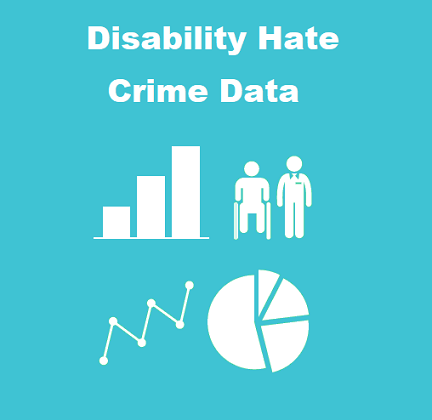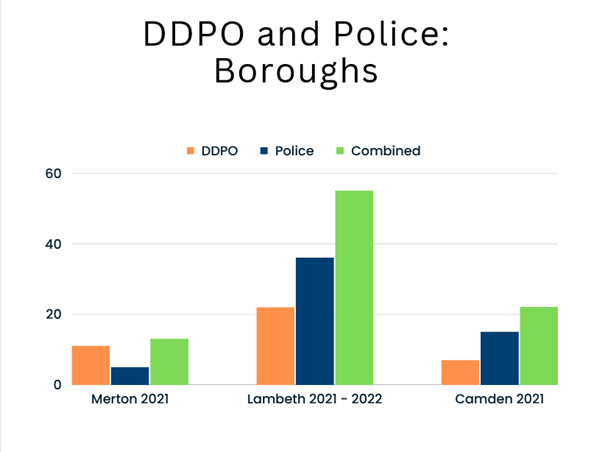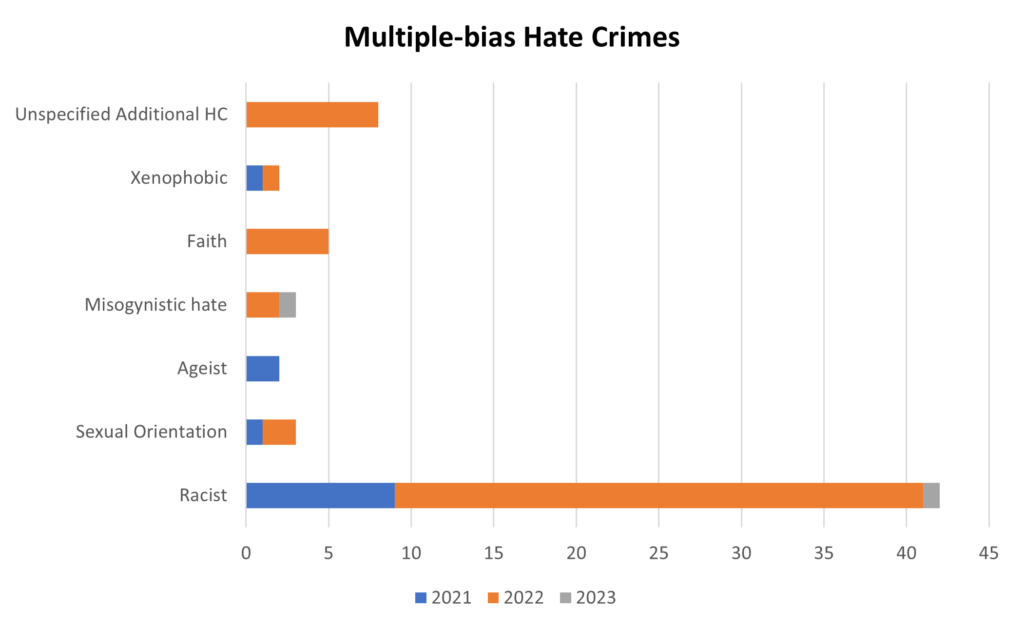Beyond the Numbers: Deaf and Disabled People’s Organisations and Hate Crime Support
Despite funding cuts, DDPOs continue to provide essential community-based support for disabled victims of hate crimes. However, with the criminal justice system becoming increasingly inaccessible, the official statistics fail to reflect the true extent of the issue.

In-depth report into the experience of Disabled victims of hate crime in London
Inclusion London’s report is the first of its kind to look in-depth at what DDPOs are doing to support Disabled victims of hate crime in London, how they do it, and who accesses the support and services.
Louise Holden, currently the Hate Crime Project Manager at Inclusion London says, ‘We are often asked why reporting is so low for disability hate crime. I think this report gives clear, relevant evidence into why, but importantly gives clear recommendations on how to improve community confidence and reporting. As Disabled victims say, believe us, so I would urge commissioners and stakeholders to believe what this report says, and act on it.’
This report is based on three years of data from DDPOs supporting Disabled victims of hate crime shows that more work is needed to improve community trust to report to the police. The work needed involves acknowledging the importance of community-based organisations, and funding them to have the capacity and skills needed to support victims, regardless of whether they want to report or not. Having fully accessible and inclusive community-based organisations is key to improving outcomes for Disabled victims. Many of the outcomes are not part of the criminal justice system so having holistic support services that can respond to the needs of victims is vital in terms of getting the abuse to stop and moving on from the experience toward recovery.
The report includes 343 cases provided by 7 London DDPOs from 2021 to 2023. We provided a tentative comparison, taking in consideration issues with data consistency, to the Metropolitan Police Service’s data on DHC reports for a similar timeframe.

Key Findings
Some of the key findings were:
- Half of disability hate crime victims did not want police involvement.
- The two most common reasons for this were: ‘Not enough evidence’ and ‘Just wanted to talk to someone in confidence’.
- Most disability hate crimes occurred at or near the victim’s home.
- Verbal abuse was the most common form the hate crime took, followed by ongoing and persistent harassment.
- Neighbours were the most commonly reported perpetrators of disability hate crime.
- Inaccessibility of systems and services throughout the criminal justice system was a growing concern, with many victims facing more barriers than in the initial report.
- Funding cuts hit DDPOs hard, leading to the closure of two hate crime projects in the past year.
- Disability hate crime advocates supported victims that the police didn’t even know about, leading to positive outcomes for the victim that could only be achieved through community-based support.
In terms of types of hate crime recorded, our findings show that of the 343 cases included, the following hate crimes were also reported to the caseworker:

For DDPOs, common themes emerged, including:
Disability hate crime cases were complex and ongoing, so more support was being provided to existing cases along with new cases being referred.
Short term funding meant there was a lack of continuity for victims when receiving support.
For our full report and other information, please visit the links and files below:
Standard Read Report
Easy Read Reports
Our Main Findings [Word] [PDF]
What Needs to be Better [Word] [PDF]
Reports and Resources
For more research and reports, please check out our Hate Crime Resources section.
